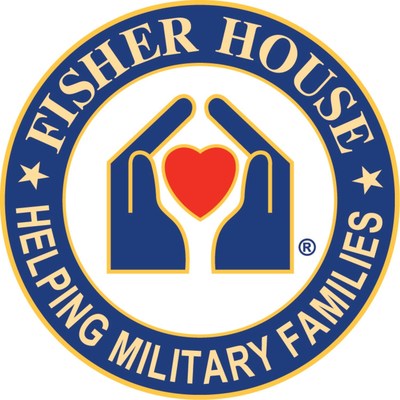After finding Fisher House and adaptive sports, a former pilot becomes veteran advocate
ROCKVILLE, Md., Jan. 12, 2023 /PRNewswire/ — David Ortiz was never afraid of a challenge. He was an avid outdoorsman before he joined the Army and became a Kiowa helicopter pilot in the 82nd Airborne Division’s Combat Aviation Brigade. In Eastern Afghanistan, Kiowa pilots took a lot of risk to protect the guys on the ground, and, in February 2012, David suffered a hard landing that destroyed his aircraft, broke his legs, and inflicted extreme trauma on his spine, throat, and lungs.
David’s memories are spotty from just before the crash until he arrived at Walter Reed National Military Medical Center, however he does remember another pilot, a fellow Texan, pulling him from the crash.
“So, you know, it was intense. When you go from being a hard-charging, over-achieving aviator with the 82nd to not being able to sit up on your own, that’s a bad day. That’s a game changer. So, if it wasn’t for the community that rallied around me, I don’t think I would have made it.”
That community largely centered on other patients in the hospital and Fisher House at Brooke Army Medical Center, Fort Sam Houston, Texas. In an amazing coincidence, one of the other residents at the Fisher House was a soldier that David had guarded from the air on the day the other soldier was injured in an ambush.
“I remember pulling security that day,” he said. “I know exactly what ambush it was, you know, in Khost, [Afghanistan] specifically. We were just chatting and realized we were on the exact same deployment, working out of [Forward Operating Base] Salerno, so it was an intense, small-world-type moment.”
David’s rehabilitation needs were long, and some of his injuries will likely never heal. He’s very open that he had days where he felt despondent, but that soldier and others who were injured before David helped show the way to recovery.
“To have a community that [we] can lean on and depend on and share that burden is huge,” he said.
David’s rehabilitation took him from Texas to Craig Hospital in Englewood, Colorado. Craig Hospital specializes in rehabilitation from spinal cord injury and traumatic brain injury. The specialists there helped get David walking.
“They were able to use orthotics to get me on my feet and they lock out at the knee and ankle.” But Craig Hospital didn’t stop there. That area of Colorado has a large number of adaptive sports specialists, and David says that staff and therapists started asking him, “‘Did you know you can downhill ski, you can cross country ski, you can mountain bike, you can camp?'”
“I was an active guy before I got hurt. I wanted to stay active. I knew Colorado was my future.”
David soon changed his medical retirement plan to Colorado and left active duty.
Now, he lives in Colorado and pays forward the assistance he received from Fisher House and other nonprofits. He serves at veteran service organizations like Veterans of Foreign Wars and Adaptive Adventures.
In his role at the VFW, he helps lobby for nonpartisan and bipartisan legislation designed to help veterans in Colorado. Some of his biggest accomplishments were getting veteran treatment courts in place to help PTSD sufferers as well as a bill that gives more college credit to veterans in Colorado public colleges for military training and experience.
He’s currently promoting additional legislation to help veterans that he says can be summed up as bills that “facilitate and empower service members transitioning to civilian life.”
Fisher House Foundation is best known for its network of 94 comfort homes where military and veteran families can stay at no cost while a loved one is receiving treatment. These homes are located at major military and VA medical centers nationwide, and in Europe, close to the medical center or hospital they serve. Fisher Houses have up to 21 suites, with private bedrooms and baths. Families share a common kitchen, laundry facilities, a warm dining room and an inviting living room. Fisher House Foundation ensures that there is never a lodging fee. Since inception, the program has saved military and veteran families an estimated $547 million in out-of-pocket costs for lodging and transportation.
Fisher House Foundation also operates the Hero Miles Program, using donated frequent flyer miles to bring family members to the bedside of injured service members as well as the Hotels for Heroes program using donated hotel points to allow family members to stay at hotels near medical centers without charge. The Foundation also manages an awards program recognizing programs that support military and veteran communities and scholarship funds for military children, spouses, and children of fallen and disabled veterans.
For more information about Fisher House Foundation, please go to www.fisherhouse.org.
![]() View original content to download multimedia:https://www.prnewswire.com/news-releases/after-finding-fisher-house-and-adaptive-sports-a-former-pilot-becomes-veteran-advocate-301717999.html
View original content to download multimedia:https://www.prnewswire.com/news-releases/after-finding-fisher-house-and-adaptive-sports-a-former-pilot-becomes-veteran-advocate-301717999.html
SOURCE Fisher House Foundation




 Private Internet Access gives you unparalleled access to thousands
of next-gen servers in over 83 countries and each US state. Your
VPN experience will always be fast, smooth, and reliable.
Private Internet Access gives you unparalleled access to thousands
of next-gen servers in over 83 countries and each US state. Your
VPN experience will always be fast, smooth, and reliable.